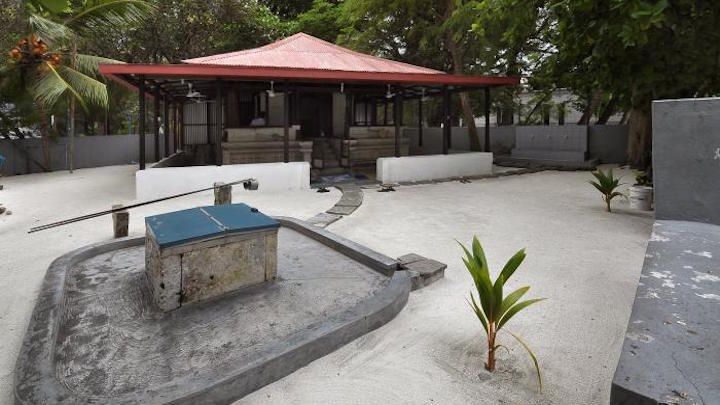Government plans to relocate ancient mosque to ‘heritage island’
The government is planning to relocate the ancient Kalhuvakaru mosque in Malé to a heritage island to be developed on the capital’s suburb Hulhumalé. Built in the late 18th century, it came to be known as the “travelling mosque” due to its history of relocation.

27 Dec 2015, 09:00
The government is planning to relocate the ancient Kalhuvakaru mosque in Malé to a heritage island to be developed on the capital’s suburb Hulhumalé.
The relocation work is to be jointly undertaken by the department of heritage, the housing ministry, the Islamic ministry, the military, and the Housing Development Corporation, a government-owned company tasked with developing Hulhumalé as an urban centre.
Mauroof Jameel, an expert on coral stone mosques, will oversee the relocation. The mosque is to be taken apart by soldiers and cleaned and reassembled by the heritage department. The housing ministry will cover the expenses.
The mosque will be relocated to Farukolhufushi, an island in the same lagoon as Hulhumalé that was merged with the artificial island when some 240 hectares were reclaimed earlier this year.
Become a member
Get full access to our archive and personalise your experience.
Already a member?
Discussion
No comments yet. Be the first to share your thoughts!
No comments yet. Be the first to join the conversation!
Join the Conversation
Sign in to share your thoughts under an alias and take part in the discussion. Independent journalism thrives on open, respectful debate — your voice matters.




